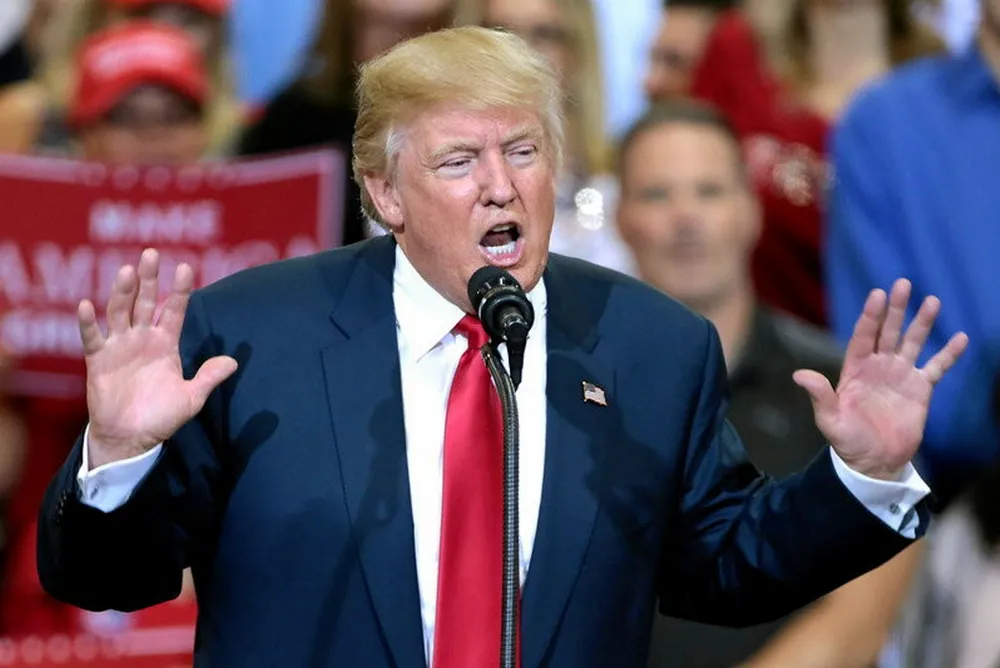IRA in Trump's sights as order halts spending from flagship Biden climate law
His executive order also affects the Infrastructure Investment and Jobs Act, which also helped underpin his predecessor's efforts to address global warming and quicken the energy transition

US President Donald Trump has directed federal agencies to “immediately pause” disbursement of funds through two signature laws that underpinned his predecessor’s efforts to address climate change and accelerate the energy transition.
The direction forms part of a blizzard of executive orders signed by the newly reinstalled president that also target wind power development on land and sea.
Under the heading of 'Terminating the Green New Deal' Trump's order instructs “all agencies shall immediately pause the disbursement of funds appropriated through the Inflation Reduction Act of 2022 or the Infrastructure Investment and Jobs Act”.
The bipartisan $1.2trn Infrastructure Investment and Jobs Act took effect in 2021 and the Inflation Reduction Act (IRA), the nation’s ambitious climate law, in 2022. IRA narrowly passed Congress without support from Trump’s Republican Party.
The infrastructure law includes appropriations for roughly $151bn for energy- and minerals-related research, demonstration, technology deployment, and incentives.
Among the provisions are $38.5bn for clean energy supply chains, $21bn for energy efficiency, $32bn for grid infrastructure, and $60bn for fuels and technology.
The IRA provided at least $142bn for investment in climate change mitigation and adaptation, and generous long-term tax credits whose total value is between $780bn and as much as $2trn, according to private and public estimates. Many of the credits have no cap on their use.
The law also greatly expanded the lending authority of the Department of Energy Loan Programmes Office for a total of $410bn in total lending capacity.
The Office of Management and Budget (OMB) later clarified that while all 120 IRA sections are under review, Trump's directive was limited to "funds supporting programmes, projects, or activities that may be implicated by the policy established in Section 2 of the order.”
Section 2 signals the administration’s policy to promote development of reliable energy resources while grounding regulatory requirements in law, encourage production and processing of non-fuel rare earth minerals, and end the “electric vehicle (EV) mandate.”
This could be subject to wide interpretation by the administration. While much attention is focused on renewable energy tax credits and related public investment, IRA allocates tens of billions of dollars for climate change adaptation and resilience, and reduction of greenhouse gas emissions.
OMB produces the president's annual federal budget for review by Congress. It also , examines agency programs, policies, and procedures to see whether they comply with the president's policies and coordinates inter-agency policy initiatives.
Trump has been mostly critical of IRA, which he disparages as the “Green New Scam.” While less dismissive of the infrastructure law, he has disagreed with certain funding provisions tied to climate.
How much money from both laws for climate-related activities and the energy transition has been awarded, and committed is unclear.
In November, the Brookings Institution estimated about 45% of authorised funding in the infrastructure law for energy had been awarded.
The same month, the White House said two-thirds of IRA climate funding had been tentatively awarded. Sierra Club, a prominent environmental group with close ties with previous President Joe Biden’s administration, on Monday said “estimated 84% of funding from the IRA has already been released.”
At various times, Trump has threatened to undermine IRA, should Republican majorities in Congress fail to rescind or diminish it with legislation.
Potential actions include clawing back funds already spent, impounding funds, re-directing unspent funds for other purposes, and terminating individual award agreements.
Most of those actions would face court challenges.
That methodology must be consistent with the administration’s energy policy, it states, which is to ensure the US has an “abundant and readily accessible supply of reliable energy” for its economic and national security, and military preparedness.
NEC is the president’s main forum for consideration of domestic and international economic policy matters with his cabinet officials and other senior administration policymakers.
OMB’s core function if produce the president’s federal budget. It also examines agency programs, policies, and procedures to see whether they comply with the president's policies and coordinates inter-agency policy initiatives.
(Copyright)